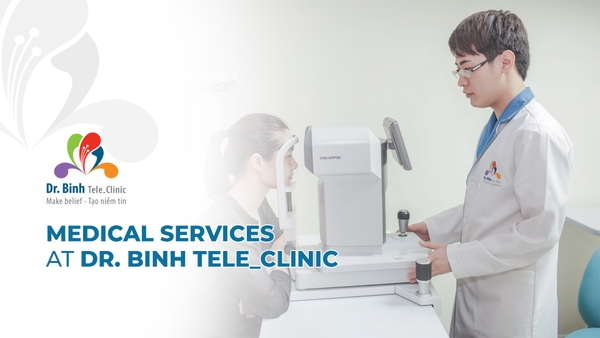6 Common Systoms of Chronic Sinusitis
- Dr.Binh Tele_Clinic offers up to 30% off on endoscopy with anesthesia combos
- Special Offers at Dr.Binh Tele_Clinic on Vietnamese Women’s Day
- Dangerous complications of cerebral infarction
- What to know when treating urinary stones?
21/01/2021
-0 Bình luận
Chronic sinusitis occurs when the spaces inside your nose and head (sinuses) are swollen and inflamed for three months or longer, despite treatment.
This common condition interferes with the way mucus normally drains, and makes your nose stuffy. Breathing through your nose may be difficult, and the area around your eyes might feel swollen or tender.
Chronic sinusitis can be brought on by an infection, by growths in the sinuses (nasal polyps) or swelling of the lining of your sinuses. Also called chronic rhinosinusitis, the condition can affect both adults and children.

Symptoms
Common signs and symptoms of chronic sinusitis include:
- Nasal inflammation
- Thick, discolored discharge from the nose
- Drainage down the back of the throat (postnasal drainage)
- Nasal obstruction or congestion, causing difficulty breathing through your nose
- Pain, tenderness and swelling around your eyes, cheeks, nose or forehead
- Reduced sense of smell and taste
Other signs and symptoms can include:
- Ear pain
- Aching in your upper jaw and teeth
- Cough or throat clearing
- Sore throat
- Bad breath
- Fatigue
Chronic sinusitis and acute sinusitis have similar signs and symptoms, but acute sinusitis is a temporary infection of the sinuses often associated with a cold. The signs and symptoms of chronic sinusitis last at least 12 weeks, but you may have several episodes of acute sinusitis before developing chronic sinusitis. Fever isn't a common sign of chronic sinusitis, but you might have one with acute sinusitis.

When to see a doctor
Schedule an appointment with your doctor if:
- You've had sinusitis a number of times, and the condition doesn't respond to treatment
- You have sinusitis symptoms that last more than 10 days
- Your symptoms don't improve after you see your doctor
See a doctor immediately if you have the following signs or symptoms, which could indicate a serious infection:
- Fever
- Swelling or redness around your eyes
- Severe headache
- Forehead swelling
- Confusion
- Double vision or other vision changes
- Stiff neck

Causes
Common causes of chronic sinusitis include:
- Nasal polyps. These tissue growths can block the nasal passages or sinuses.
- Deviated nasal septum. A crooked septum — the wall between the nostrils — may restrict or block sinus passages, making the symptoms of sinusitis worse.
- Other medical conditions. The complications of conditions such as cystic fibrosis, HIV and other immune system-related diseases can lead to nasal blockage.
- Respiratory tract infections. Infections in your respiratory tract — most commonly colds — can inflame and thicken your sinus membranes and block mucus drainage. These infections can be viral, bacterial or fungal.
- Allergies such as hay fever. Inflammation that occurs with allergies can block your sinuses.
Risk factors
You're at increased risk of getting chronic sinusitis if you have:
- A deviated septum
- Nasal polyps
- Asthma
- Aspirin sensitivity
- A dental infection
- An immune system disorder such as HIV/AIDS or cystic fibrosis
- Hay fever or another allergic condition
- Regular exposure to pollutants such as cigarette smoke
Complications
Serious complications of chronic sinusitis complications are rare, but may include:
- Vision problems. If your sinus infection spreads to your eye socket, it can cause reduced vision or possibly blindness that can be permanent.
- Infections. Uncommonly, people with chronic sinusitis may develop inflammation of the membranes and fluid surrounding the brain and spinal cord (meningitis), an infection in the bones, or a serious skin infection.
Prevention
Take these steps to reduce your risk of getting chronic sinusitis:
- Avoid upper respiratory infections. Minimize contact with people who have colds. Wash your hands frequently with soap and water, especially before meals.
- Manage your allergies. Work with your doctor to keep symptoms under control. Avoid exposure to things you're allergic to whenever possible.
- Avoid cigarette smoke and polluted air. Tobacco smoke and air contaminants can irritate and inflame your lungs and nasal passages.
- Use a humidifier. If the air in your home is dry, such as it is if you have forced hot air heat, adding moisture to the air may help prevent sinusitis. Be sure to keep the humidifier clean and free of mold with regular, thorough cleaning.
Source: MayoClinic




















Bình luận của bạn